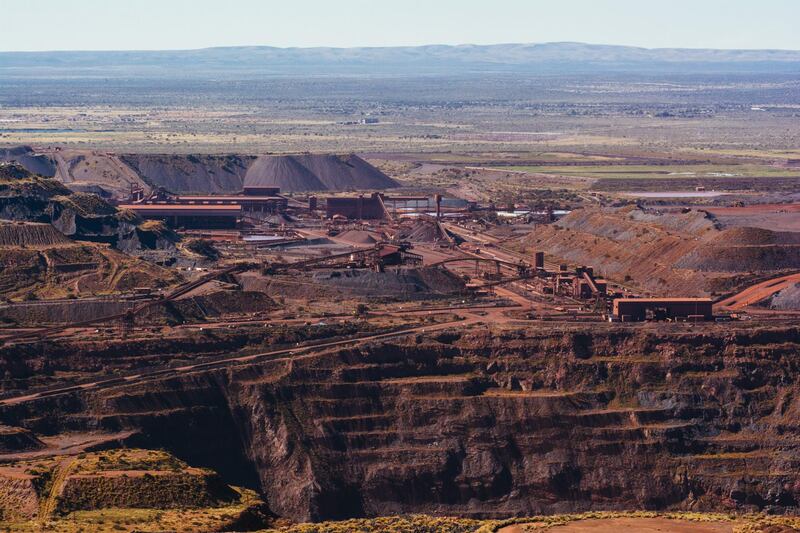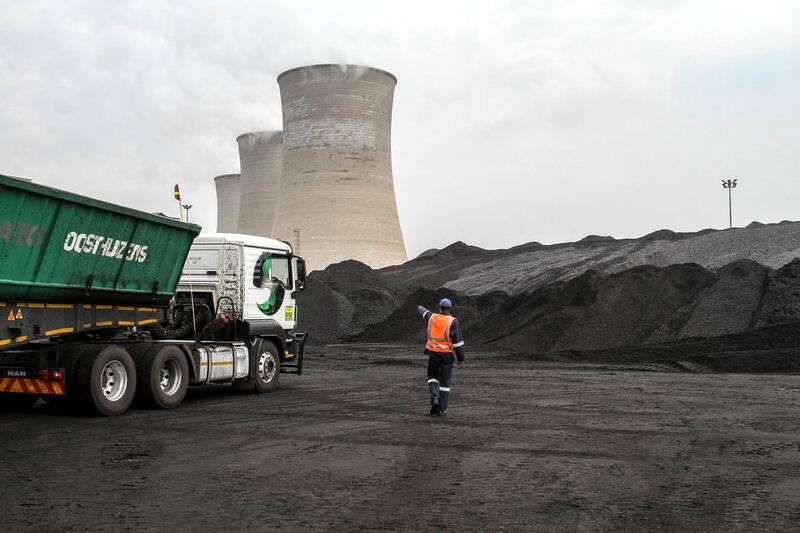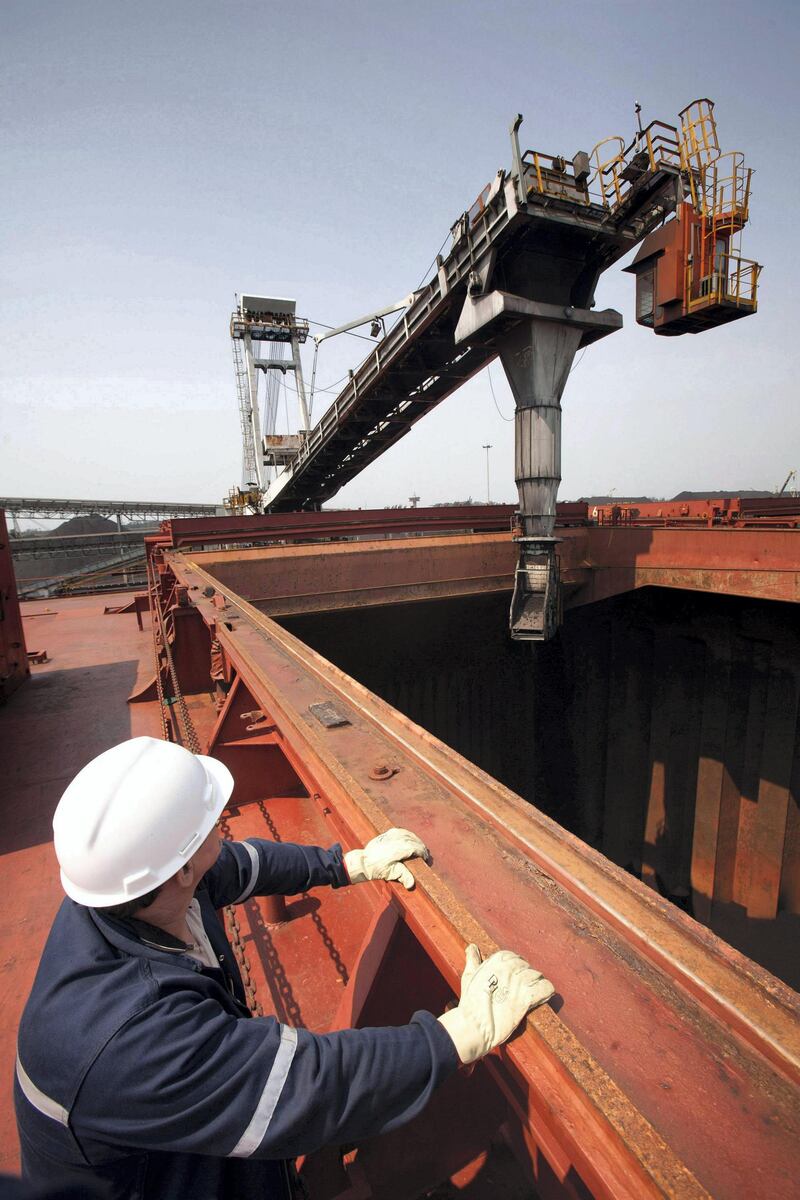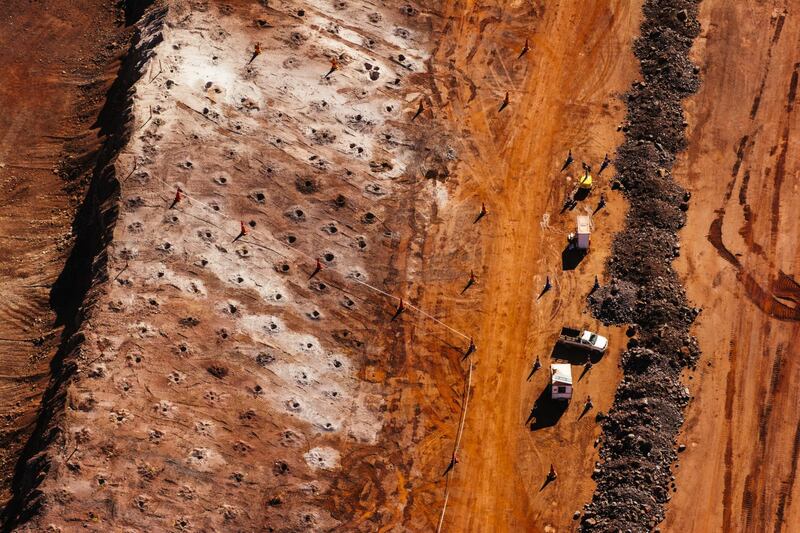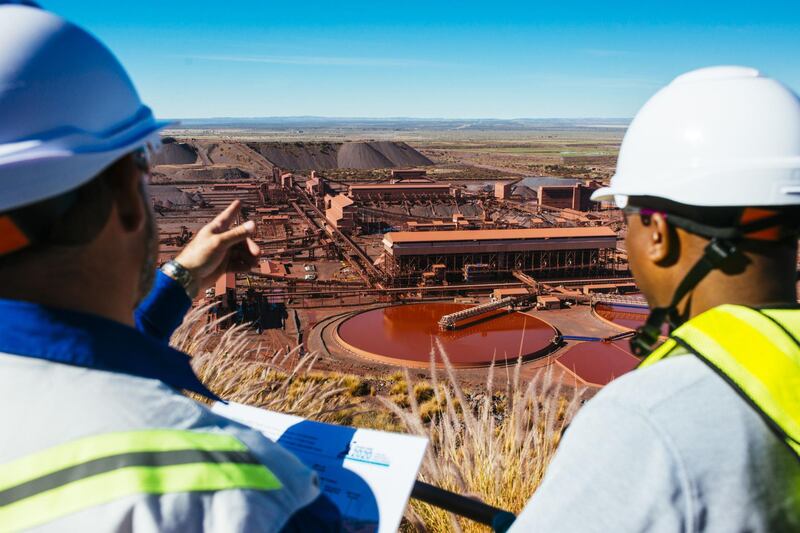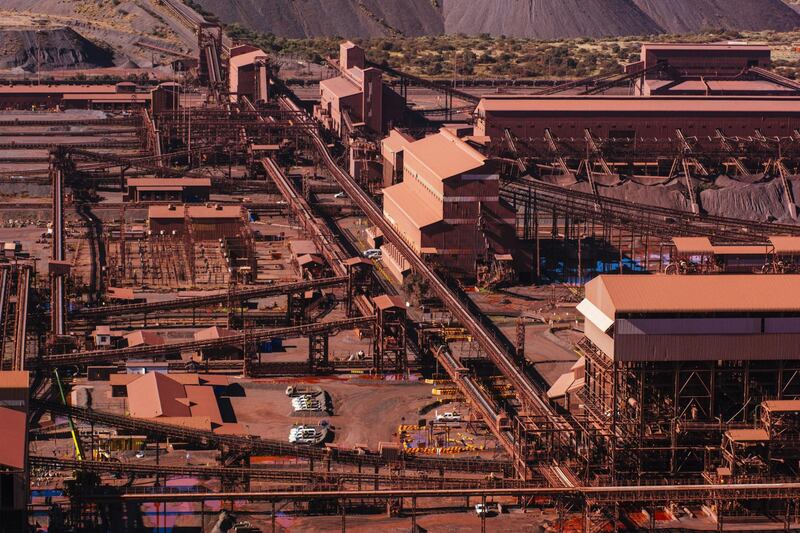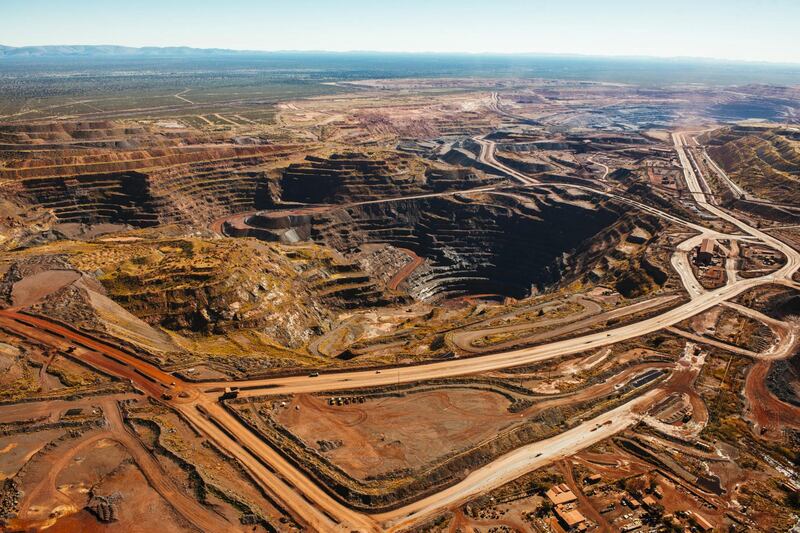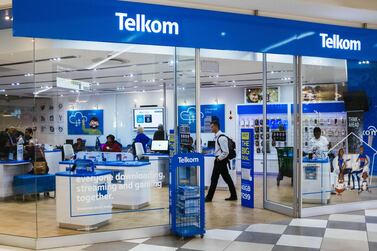I was always struck by the eyes. Red and sunken. Skin covered in coal dust and sweat. Overalls darkened by coal.
I remember the rush after a shift ended. The bread; half loaves handed to hungry mineworkers; the thick dust engrained into their worn fingers mingling with the crusts. The miners bought half loaves because it was cheaper and because it was an easy, filling meal. It would be paired with a traditional fermented drink known as "amasi". I remember the coal-dust-covered money.
My personal history is intertwined with mining. My parents brought me to South Africa from Greece when I was just four years old. We settled in a town then known as Witbank, 70 miles from Johannesburg. Today it is known by its Nguni name, eMalahleni, which literally means "place of coal".
There was no escaping the coal, even then. As children we would smear Vaseline onto windows to see how quickly the ever-present coal dust would accumulate on them. The smell of sulphur permeated the air.
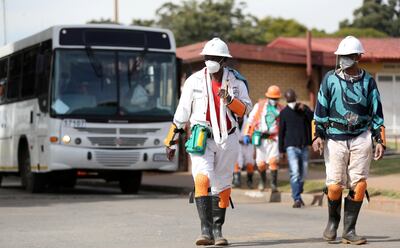
My mother made frequent trips to the doctor to try and remedy the chronic respiratory issues I had, without doubt because of our proximity to the source of most of the town’s income. What sustained us was also weakening us.
In 2013, when an EU research team measured the air quality around eMalahleni, the levels of chromium and barium were so high that their instruments were unable to record accurate measurements.
The half loaves in those miners’ hands were placed there by my father, who ran a small general store selling everything from baked goods to cleaning products on a mining residential property. It’s where I would spend my weekends and school holidays in the mid-90s. My parents spoke little English when they arrived in South Africa, and as a child I would often translate for them. The general store was my connection to a world that has stayed with me; the counter that separated me from clients a physical symbol of the inequalities between their lives and mine.
I learned my first few words of Zulu there, and I learned to understand just a little of what it meant to work deep underground: the hardiness, stamina and resolve; the dirt, the poverty and the risks.
Those risks also touched me personally. In 2014, a close friend, months away from his wedding, was killed in a mining accident. As a broadcast journalist, I even found myself having to announce the news on air at the time.
And yet, until this month, I had never been inside a coal mine. Descending 200 metres below ground, at Sasol’s Impumelelo mine in the town of Secunda, I was anxious, but excited to finally grasp an extra piece of the jigsaw.
But Covid-19 has added a new layer of risk to this already hazardous business. Coal remains utterly vital to South Africa’s economy; around 80 per cent of the country’s power still comes from it. For that reason, there has been no possibility of a pandemic pause.
All who work here are essential to the mine’s operation, and Sasol takes their safety seriously. Before we descended, we were briefed and supplied with special equipment: an emergency breathing apparatus and a sensor on my belt that will automatically stop heavy machinery if I get too close. “Everyone on the mine is critical,” Sandile Siyaya, the mine’s general manager, told me.
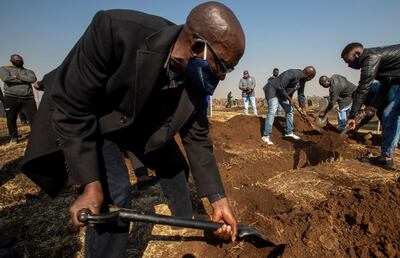
But Covid-19 precautions are another challenge entirely. The company has introduced strict protocols to keep its miners safe and its mines working. Masks are ubiquitous, sanitising between shifts mandatory. There is a clinic on site to test, monitor and care for employees. Even with these precautions, however, there have been more than 100 cases at this mine alone. When one miner tests positive, everyone on that worker’s section is quarantined. As a result, productivity is down by around 16 per cent.
The miners’ work is essential in more ways than one. Pelaelo Mthombeni was the mine’s first employee to come down with the virus. She recovered and is now grateful to be back underground. “My kids go to school because of this job,” she told me. “I can pay a helper at home because of this job. I can do many things. I can support my family.”
Davis Cook, chief executive of the Research Institute for Innovation and Sustainability, says that the coal industry presents specific problems because of its scale. The industry employs around 430,000 people in South Africa. Cook says community transmission was “a far greater influence” for coal than for gold and platinum mining, which employ around 300,000 people combined.
Mining here has also borne the legacy of apartheid, and that system’s lack of interest in the welfare of black workers. There has always been a question of whether mining companies are doing enough for their communities and their workers’ health.
Dr Thuthula Balfour, head of health at Minerals Council South Africa, agrees that health has been less of a priority than safety for the industry. “It's quite true that over the decades it's been hard for people to take health at the same level as safety, and maybe it's because safety is so in your face – when someone dies on site in front of your eyes, compared to a person who dies from a health-related illness.”
She believes Covid-19 could shift that balance. “I think maybe what this epidemic has actually done is to show just how health is also quite important, in that you've got people who were dying… most people, you know, within two weeks they would die.”
The Mineworkers and Construction Union is less convinced. “Covid-19 will be an eye opener for the mining industry, right across the board, the Union’s regional chairperson, Manzezulu Nkambule, believes. “You can see the numbers are rising. They’ve been inhaling this dust for years. And when the virus comes in, it already finds an immune system that is weakened and then it attacks.”
Lucky Kgatle, senior vice president of Sasol Mining says Covid-19 has sharpened their focus on their workers’ communities. “We had to acknowledge we are part of the communities where we are operating, and we’ve had to share the challenges and the hardships they are facing, the uncertainties that are happening,” she says.
“We face a lot of criticisms, but I believe we do a lot of work to ensure our workers’ safety. We have not arrived yet, there are still challenges, but a lot of investment. Many of our employees feel safer here at work rather than outside.”
This last point is perhaps the most acute part of the problem. While the risks below ground are being carefully mitigated, those on the surface are mounting.
“It’s hard, man, working underground is hard,” a miner at Sasol, Percy Simelane, told me. At the company-owned housing complex where he lives with his wife and two sons, no one from Sasol has come to talk about Covid-19, he said. “Once we leave the mine, they’ve forgotten about it. They say you must look after yourself.” Fear, he says, is ever present. “I’m afraid for my boys, he says. It’s tough.”
For miners, it was ever thus; but the pandemic has raised the stakes for everyone involved. Simelane will keep going underground. He must. Like so many in this sector he is an essential employee, and his job means everything. His eyes reminded me of the many miners I had met as a young girl, this time accentuated by the mask that covered his face.
Eleni Giokos is a correspondent for CNN International and its programme Marketplace Africa
